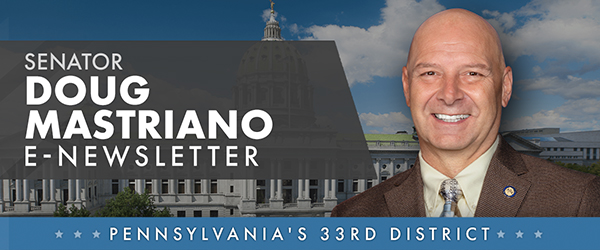
|
|||
|
In this Issue:
What is a “Stay at Home Order?”
Individuals may leave their residence perform the following allowable individual activities and allowable essential travel: Anything to maintain health/safety of themselves, family or household members (including pets), such as obtaining medicine or medical supplies, visiting a health care professional, or obtaining supplies they need to work from home; Getting services or supplies for themselves, for their family or household members, or as part of volunteer efforts, or to deliver those services or supplies to others to maintain the safety, sanitation, and essential operation of residences; Engaging in outdoor activity, such as walking, hiking or running; Work and travel in support of essential services or at a life-sustaining business; To care for a family member or pet in another household; Any travel related to the provision of or access to the above-mentioned individual activities or life-sustaining business activities; Travel to care for elderly, minors, dependents, persons with disabilities or other persons; Travel to educational institutions to receive materials for distance learning, for receiving meals, and any other related services; Travel required by law enforcement or court order; Travel required for non-residents to return to their residence outside of PA; and Anyone performing life-sustaining travel, does not need paperwork to justify travel. The following operations are exempt: Life-sustaining business activities; Healthcare or medical service providers; Access to life-sustaining services for low-income residents, including food banks; Access to childcare services; News media; Law enforcement, emergency medical services personnel, firefighters; The federal government; and Religious institutions. PennDOT Extends Deadlines for Driver Licenses, Registrations and More
Since all Driver License Centers and Photo License Centers remain closed due to COVID-19, PennDOT recently extended the expiration date for many driver licenses, vehicle registrations and other products that are typically renewed at these locations. Any of the following that are set to expire from March 16 through April 30 will be extended to May 31:
Although all of PennDOT’s physical locations are closed, driver and vehicle services are still available online 24 hours a day, 7 days a week at www.dmv.pa.gov. More information about PennDOT’s response to the coronavirus, including a list of frequently asked questions and answers, is available here. Federal Action Could Offer Relief for Self-Employed Pennsylvanians Affected by COVID-19 MitigationGovernor Wolf’s order for all non-life-sustaining businesses to close has created unprecedented financial hardships for hundreds of thousands of Pennsylvania workers who were suddenly left without a paycheck. Although the state has eased eligibility criteria and waived certain requirements to help many affected workers through a new law I supported last week, contractors and other self-employed individuals who are not typically eligible for unemployment compensation still faced a great deal of uncertainty. However, a new program just approved by our counterparts in Congress could offer relief to these individuals and families. The newly created Pandemic Unemployment Assistance program is designed to provide payments to individuals who are not usually eligible for unemployment benefits and are unable to work due to the coronavirus public health emergency. The program requires an agreement between the state and the federal government, and a separate application may be necessary for these workers to collect benefits. Work is ongoing between the state and federal government to get this program up and running, and it is expected that an application process will be created very soon. I will share additional updates as soon as information becomes available. More information for businesses and employees affected by coronavirus mitigation is available here. USDA Approves COVID-19 Disaster Food DistributionThe federal government has approved Pennsylvania’s request to operate a Disaster Household Distribution program to provide critical food supplies to individuals and families adversely affected by statewide COVID-19 mitigation efforts. Now through April 26, Pennsylvania is authorized to serve up to 772,500 individuals using available foods from the United States Department of Agriculture (USDA). The disaster distribution food packages will be provided through a network of food banks, as well as mobile and pop-up sites. Foods approved for distribution include: frozen meats, canned meats, canned vegetables, canned fruits, canned soups, dried and canned beans, rice, nuts, cereal, juice, shelf stable milk, fresh apples, fresh oranges, fresh potatoes, boxed pastas, canned tomato sauce, and eggs. More information on this announcement is available here. Efforts Underway to Bolster Healthcare SystemHealthcare professionals are on the front lines in the fight against COVID-19, and the virus is already placing new demands on hospitals and workers. A number of steps have been taken over the past week to bolster our healthcare system and support the men and women who are working day and night to support patients in need. I supported passage of a bill that was signed into law on Friday to provide an additional $50 million for medical supplies and equipment to protect healthcare professionals and aid in their life-saving efforts. More details about this bill and other COVID-19 mitigation measures I supported last week are available here. The Department of State has also taken a number of steps to support the healthcare community, including: Easing the process for recently retired healthcare providers to re-enter the field to assist in COVID-19 response. Waiving certain requirements and extending deadlines for nurses, nurse practitioners and nursing school graduates. Supporting the use of telemedicine to treat patients safely and remotely. Ensuring out-of-state pharmacies can ship medicines and supplies to Pennsylvania. A breakdown of Pennsylvania’s efforts to bolster our healthcare system is available here. |
|||
|
|||




Want to change how you receive these emails? 2025 © Senate of Pennsylvania | https://senatormastriano.com | Privacy Policy |

